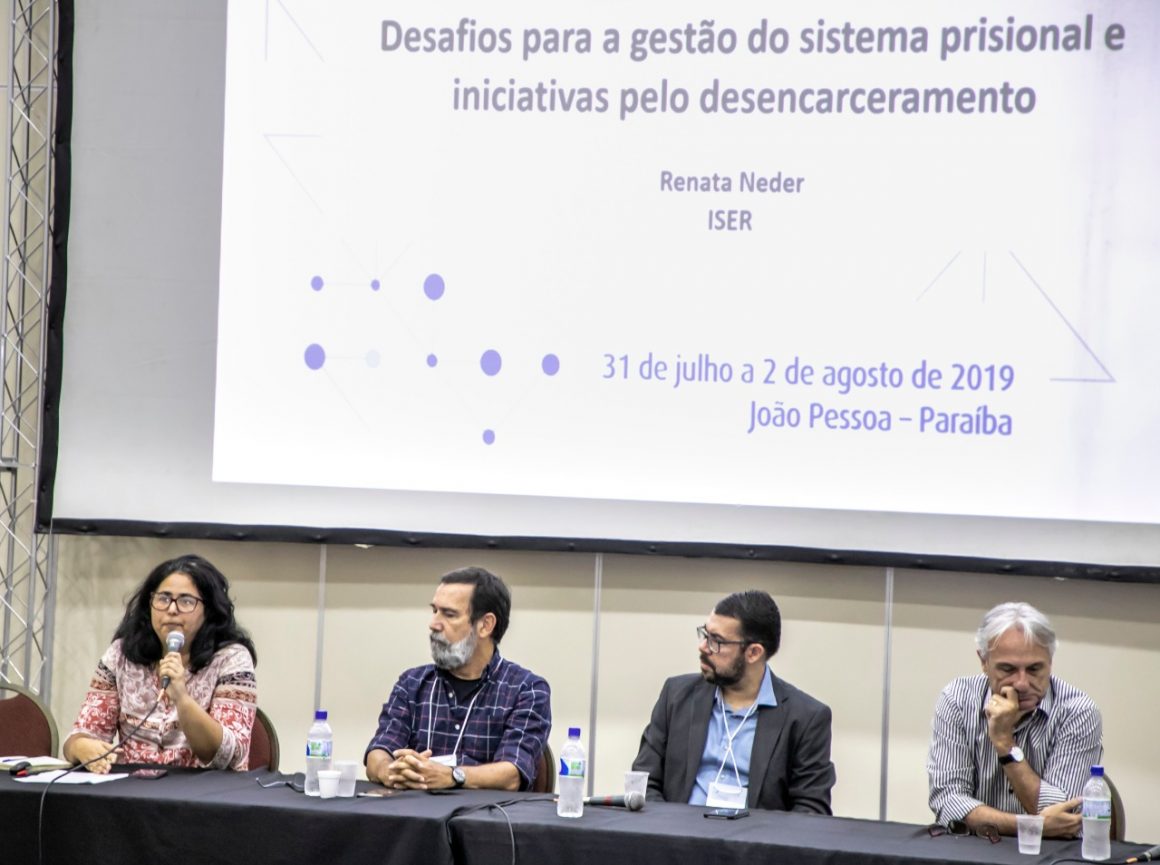H360 participates in a discussion at the 13th Meeting of the Brazilian Forum on Public Safety
The massacre that occurred on July 27, which caused the death of 62 inmates at a prison in Pará, in northern Brazil, brought the debate about the country’s prison system crisis back to the headlines. This week, Instituto Humanitas360 participated in a round table on the theme “Management Challenges of the Brazilian Penitentiary System” at the 13th Meeting of the Brazilian Forum on Public Safety, held in João Pessoa, in the state of Paraíba.
The discussion included Luís Flávio Sapori, former adjunct secretary of public safety for the state of Minas Gerais and professor at Pontifícia Universidade Católica de Minas, Renata Neder, researcher at the Instituto de Estudos da Religião do Rio de Janeiro, an institution specializing in criminal justice and custody hearings, and Ricardo Anderáos, vice president of operations at Humanitas360. The moderator for the debate was Dr. Nelson Gomes de Sant’Ana e Silva Junior, from Universidade Federal da Paraíba, another expert on the subject.
Renata Neder talked broadly about prisons, seen as one of the components of the criminal justice system. He highlighted the policy of mass incarceration, in force for years in Brazil, as primarily responsible not only for the recent massacres, like the one that occurred last May in the city of Manaus that left 55 dead, but also for the growing power of criminal organizations in the country
Luís Flávio Sapori spoke about criminal recidivism as a key indicator for gaining a better understanding of the crisis, seen by him as an essential tool for improving the management of the Brazilian prison system. He also pointed to the lack of reliable statistics as an obstacle to implementing public policies in this sector, and presented the different concepts and methods for measuring recidivism in various countries around the world. Finally, he presented a novel methodology developed by PUC-MG from research on criminal recidivism.
Ricardo Anderáos, from H360, focused on the role of work as an essential element both for the resocialization of inmates and for the improvement of safety inside prisons. Presenting the experiences in entrepreneurship developed and supported by Instituto Humanitas360 in the cities of Tremembé in São Paulo, and Ananindeua in Pará, he highlighted the incredible indicator of 0% of criminal recidivism of former inmates that had taken part in the pioneering cooperative Coostafe. He believes this proves that the pilot program “Empreendedorismo Atrás e Além das Grades” [Entrepreneurship Behind and Beyond Bars] has the potential to contribute decisively to the development of public policies that can improve the management of the prison system and contribute to reducing crime in Brazil.
The presentations were followed by questions from the audience. The Executive Secretary of Penitentiary Administration for Paraíba, Joao Paulo Ferreira Barros, present in the auditorium, expressed interest in a partnership with Humanitas360. He said that the cooperative approach could enhance the business model of the program “Castelo de Bonecas” [Castle of Dolls], developed by the Center for Female Re-education of the Mangabeira Prison Complex, in the capital João Pessoa. The director of the prison unit, Cintia Almeida, provided details about this prison’s program, which is a model for management in the state. Finally, he presented H360 with one of the rag dolls that can be purchased through the Instagram page

